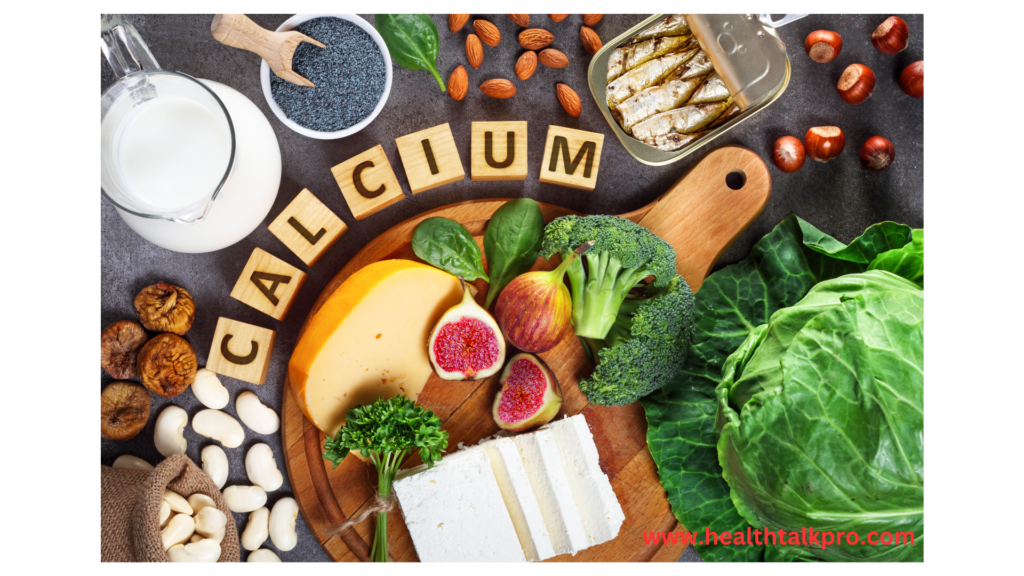Calcium Rich Foods for Babies
Calcium is an essential nutrient for babies, playing a crucial role in the development of their bones, teeth, and overall health. As a parent, ensuring your baby gets enough calcium is vital for their growth and well-being.
Why Calcium is Necessary for Babies
Calcium is a fundamental nutrient that supports several critical functions in a baby’s body:
Bone Development
Calcium is the primary building block of bones. It helps in the formation and strengthening of bones, which is especially important during infancy and early childhood when bones are growing rapidly.
Tooth Development
Calcium is essential for the development of healthy teeth. It helps in forming the structure of teeth and maintaining their strength.
Muscle and Nerve Function
Calcium plays a role in muscle contraction and nerve function. It helps regulate heart rhythm and supports the transmission of nerve impulses.
Overall, Health
Adequate calcium intake can help prevent conditions such as rickets (softening of bones) and osteomalacia (softening of bones in adults).
Daily Recommended Amount of Calcium for Babies
The daily recommended intake of calcium varies based on the age of the baby:
Infants 0-6 Months
Breast milk or formula provides all the necessary calcium for infants up to six months old. The average intake from breast milk or formula is about 200-250 mg per day.
Infants 7-12 Months
As babies start introducing solid foods around six months, they need approximately 260 mg of calcium per day.
Toddlers 1-3 Years
For toddlers, the recommended daily intake increases to about 700 mg of calcium per day.
Best Calcium-Rich Foods for Babies
Formula or Breast Milk
The main source of calcium for babies younger than six months is breast milk or formula. Make sure to mother exclusively or use a premium infant formula that satisfies nutritional requirements. The daily calcium need for infants under six months is 200 mg, and for those between six and eleven months, it rises to 260 mg.
Dairy products
Around six months after your infant begins eating solid foods, you can start introducing dairy products:
Yogurt: Probiotics, protein, and calcium are all abundant in plain, full-fat yogurt. It can be used with fruits for a natural sweetness starting at six months of age.
Cheese: At 8 to 10 months of age, soft cheeses like cottage cheese or mozzarella can be introduced.
Milk: Around 12 months of age is when whole cow’s milk can be administered. About 39% of toddlers’ daily calcium needs are met by the 276 mg of calcium included in one cup of cow’s milk.
Plant-Based Milks with added nutrients
Fortified plant-based milks are great substitutes for vegan or lactose-intolerant infants:
Soy Milk: A toddler’s daily calcium requirements are around 34% met by one cup of soy milk, which contains 237 milligrams of calcium.
Almond milk: Opt for unflavored and unsweetened varieties. Calcium and vitamin D are frequently added to these milks.
Greens with leaves
Although they don’t contain as much calcium as dairy products, leafy greens are nevertheless a good source:
Broccoli: To help your infant absorb broccoli, steam and purée it. About 50 milligrams of calcium can be found in half a cup of cooked broccoli.
Spinach: You can include cooked spinach into mashed or pureed dishes. However, oxalic acid affects its absorption of calcium.
Like broccoli, kale should be cooked before being pureed for your infant. There are roughly 100 milligrams of calcium in half a cup of cooked kale.
Pulses and Lentils
These are highly digestible and rich in calcium and protein:
Moong Dal: Can be introduced as early as 6 months. Make Moong Dal Khichdi, a traditional and nutritious dish.
Rajma and Bengal Gram: These pulses can be mashed and added to purees or made into dishes like Rajma Cheese Parathas.
Millets
Ragi: Ragi (finger millet) is a rich source of calcium, especially when sprouted. It can be given to babies as early as 6 months and is often used to make porridges or other baby-friendly dishes.
Other Millets: Other millets like amaranth and bajra are also good sources of calcium and can be introduced in various forms.
Tofu
Fortified Tofu: Especially fortified tofu, is a great non-dairy source of calcium. A half cup of fortified tofu has about 138 milligrams of calcium, which is about 53% to 69% of a baby’s recommended daily intake.
Nuts and Seeds
- Almonds: Can be introduced after 1 year, crushed or added to milk to avoid choking hazards. They are a good source of calcium and other nutrients.
- Other Foods
- Sweet Potatoes: Rich in calcium, vitamins A, C, and folate. They can be pureed and served to babies from 6 months old.
- Oranges: While not as high in calcium as other foods, oranges are a good source of calcium and vitamin C, which helps in immunity and bone development.
- Eggs: A good source of calcium, folate, zinc, and phosphate. They can be served boiled and mashed for infants and in various forms for older children.
- Fish: Sardines and other small fish are excellent sources of calcium andomega-3 fatty acids.
